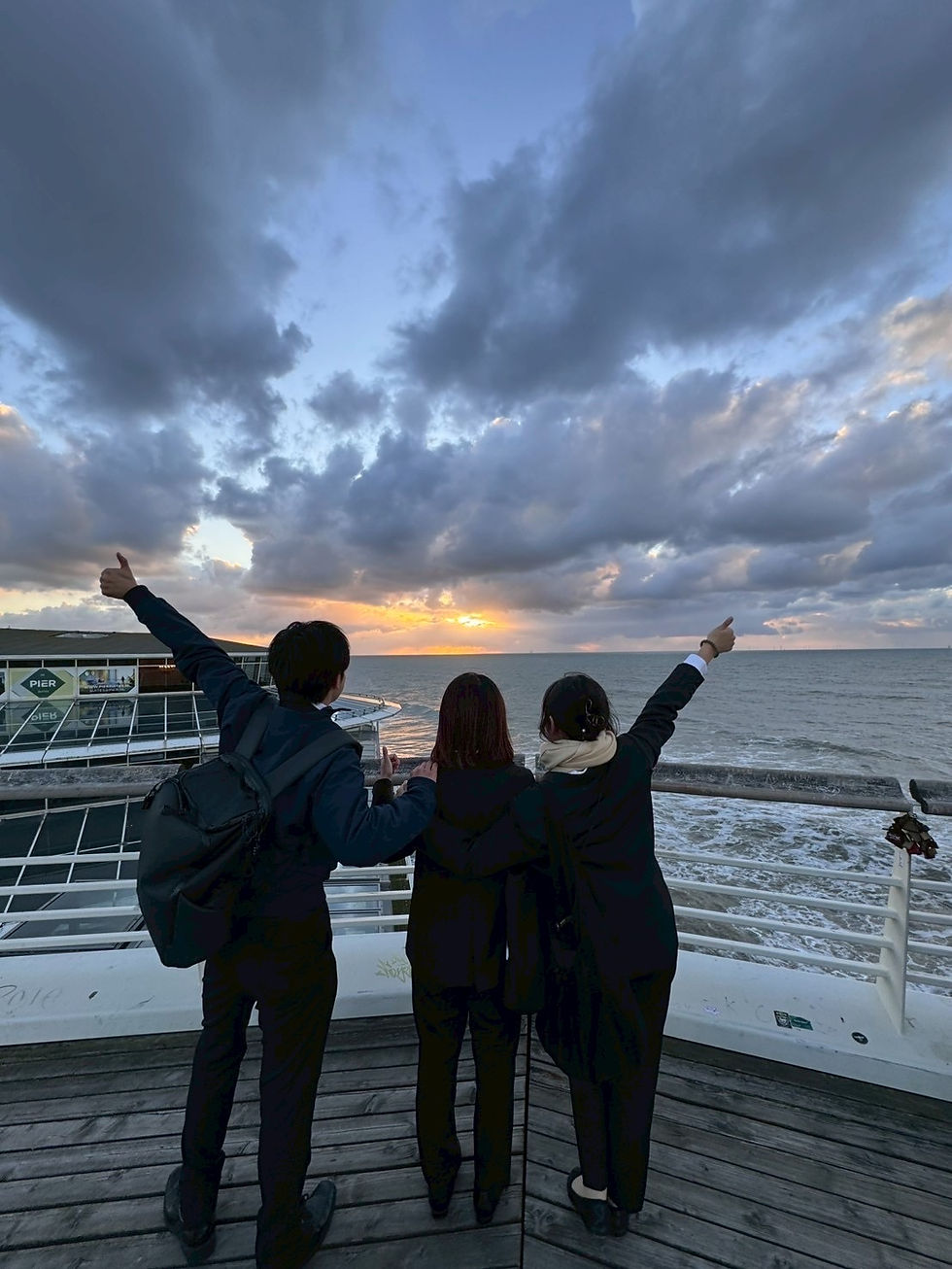[Competition Report] Won Second Place!!: Kırımlı Dr. Aziz Bey International Humanitarian Law Compet
- Administrator
- 2021年8月27日
- 読了時間: 3分
更新日:2021年9月26日
M1 Tomoki YOKOYAMA
I participated in ‘Kırımlı Dr. Aziz Bey International Humanitarian Law Competition and Advanced Summer School’ with Reona FUKUHARA (M1) and Kakeru KIKUCHI (B3) between 30 July and 7 August. We participated in this competition as representatives of Fujii’s Seminar. The Istanbul Center of International Law (ICIL) and the Turkish Red Crescent (Turkish: Türk Kızılay), with the International Committee of the Red Cross as a contributing partner, organized this competition and summer school to promote international humanitarian law (IHL) and to assist us in improving our ability to apply the law by taking it out of the books. About 20 participants who passed the preliminary round gathered from various countries, including Russia, Georgia, Iran, and Turkey. In the first five days, we attended 12 classes and participated in 8 exercise sessions to deepen our knowledge of IHL. Then, in the four-day competition, we got the opportunity to practice what we learned from the classes and the exercises.
We spent tough days during the summer school and the competition. However, we never gave up studying and supporting each other and never lost our goal to improve our understanding of how IHL works in the field and what struggles exist between academic discussion and the actual implementation of IHL. As a result of our hard work, we won second place in the competition!! Here, I would like to share what we learned from this valuable experience, primarily focusing on the ‘interplay between IHL and international human rights law (IHRL)’ and the competition overall.

Advanced Summer School: International Humanitarian Law and International Human Rights Law
In the first five days, participants took 12 classes covering a wide range of dimensions of IHL: (e.g., classification of conflict, the geographical scope of application, protection of cultural property, protection of environment…). All of the classes broadened our perspectives about IHL. Mainly, I was interested in the lecture on ‘interplay between IHL and IHRL,’ taught by Professor Marco Sassoli from the University of Geneva. I want to share one discussion point to be considered here.
IHL is not the only legal instrument applied to humanitarian problems during armed conflicts, but other branches of international law govern such issues. The application of IHL and IHRL to armed conflicts often discusses the relationship between them. For example, it is questionable how to determine the applicable law when both IHL and IHRL can be applied to a specific situation, but application leads to a different result. One of the most critical issues relating to this problematic relationship between IHL and IHRL is the admissibility of detaining enemies. IHL does not prohibit belligerent parties from detaining enemies until the end of the hostilities. On the other hand, IHRL requires a legal basis for any detention without judicial review by an independent and impartial court, not the obligation under IHL. In addition to these legal issues, we studied some theories to interpret the relationship between IHL and IHRL.
After each class, participants attended exercise sessions. These sessions brought us opportunities to practice for the competition because we were given roles in each session and discussed scenarios related to the previous lectures’ themes. Further, we were able to know each other through these sessions.
Competition
We participated in the competition between 4th and 7th August. We were so nervous before every session because all assigned roles were more difficult than expected. For example, we acted as persons from a company that produces cluster munitions in the weapons law session. Using cluster munitions is prohibited by international law, but we had to sell this weapon at a tender. Although it was challenging for us, we believed what we studied and our practice and never stopped our preparation. The other sessions were so tricky as the weapons law’s session. However, we considered what we learned and our practice. We never stopped our preparation. As a result of our significant effort, our team was selected as a finalist!! When I received this announcement, I felt delighted. At the same time, I heard my heart beating because we became finalists for the first time. The final round was a good experience for us, although our team could not be a champion. We appreciate your choosing us as finalists.
Also, we would like to express great thanks to the teaching assistants who hold the feedback sessions. Thanks to feedback sessions held at the last of each day’s schedules, we made progress day by day. In addition, effective and practical comments by TAs contributed to our improvement. It is not an exaggeration to say that we could not become finalists without help from the TAs.
Before concluding this essay, I would like to say congratulations to Ms. Reona Fukuhara. She was nominated as the best speaker!!
We want to give organizers, instructors, and participants my most profound gratitude of thanks. Also, we are so grateful for the help by Mr. Fujii and members of Fujii’s seminar.




コメント